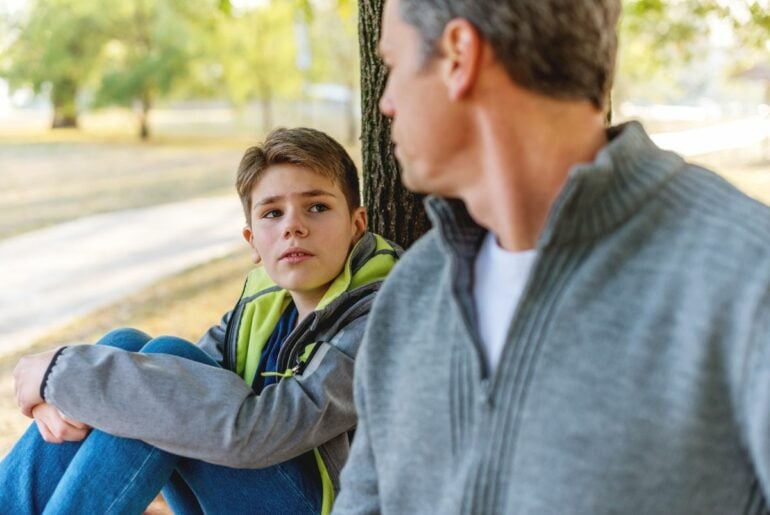Kids often repeat words they don’t understand, even ones that may be upsetting to hear. Racial slurs can be particularly upsetting to hear from a child — especially when it’s directed at another child.
Putting racial slurs like the “n-word” into context for your child can help them understand why it’s not okay for some people to say, and how it can impact people depending on their identity. This first script will help you explain the “n-word” to your non-Black child in terms they can understand, and the script that follows will help you explain why sometimes “bad” words can be okay for some people to say but not others.
Explaining the “n-word”
Maybe your kid is asking what the word means, you’ve overheard their friends saying it, or your child was involved in an incident on social media or in person where they or someone else used the racial slur. Either way, you do need to have a serious conversation with them, but try your best to stay calm and not jump to conclusions about their intentions. You can say —
“You might not have known this, but that word is really hurtful and we shouldn’t use it. Ever. It’s been used by people who wanted to hurt Black people, to put them down because they thought white people were better and more deserving. Does that sound like something you’d be a part of? Of course not.
So even if you were joking or didn’t mean to hurt anyone, or if someone else told you it’s fine to say, the word can still make a lot of people feel bad, scared, and unsafe.”
Harsh words or a big reaction might just confuse them or make them angry — instead of actually teaching them why the word is not okay. It is important, however, to make it clear that they’ll need to take accountability if they’ve already used the word. You can say —
“Everyone deserves to feel safe in their own skin, right? And the words we choose can help with that. You’ll need to make a genuine apology to your friend. Do you want to write something down and run it by me?
Let’s come up with ways to respond if your friends ever use words like this again. We can make a list and highlight the ones that sound right.”
Explaining why not everyone should say the “n-word”
What if they ask why their Black friends can use that word but they can’t? What if they hear it in a song — why is it an okay word for some lyrics, or for some people, but not others? It can be confusing. Even if you have a sense of why it’s okay for some and not others, it can be hard to find the words to explain it to a child. Here’s what you can say if it comes up —
“That’s a good question. Remember how we talked about what the ‘n-word’ means? Right, it’s a word that (mostly white) people have used to hurt and scare Black people. So we never use it, because we don’t want anyone to feel unsafe or think we’re trying to use it to make them feel bad.
But it’s confusing when a word is “bad” for some people and not others, right? When people use a slur that’s usually directed at people with their same identity (like when Black people use the ‘n-word’), it’s a way to take the power away from people who were using the word in a mean way, and give that power to the people who were being hurt by that word instead.
Here’s a general rule: If we’re not part of the group that’s been hurt by a word, then we can’t be the ones to try to make it into a positive, powerful word.”







